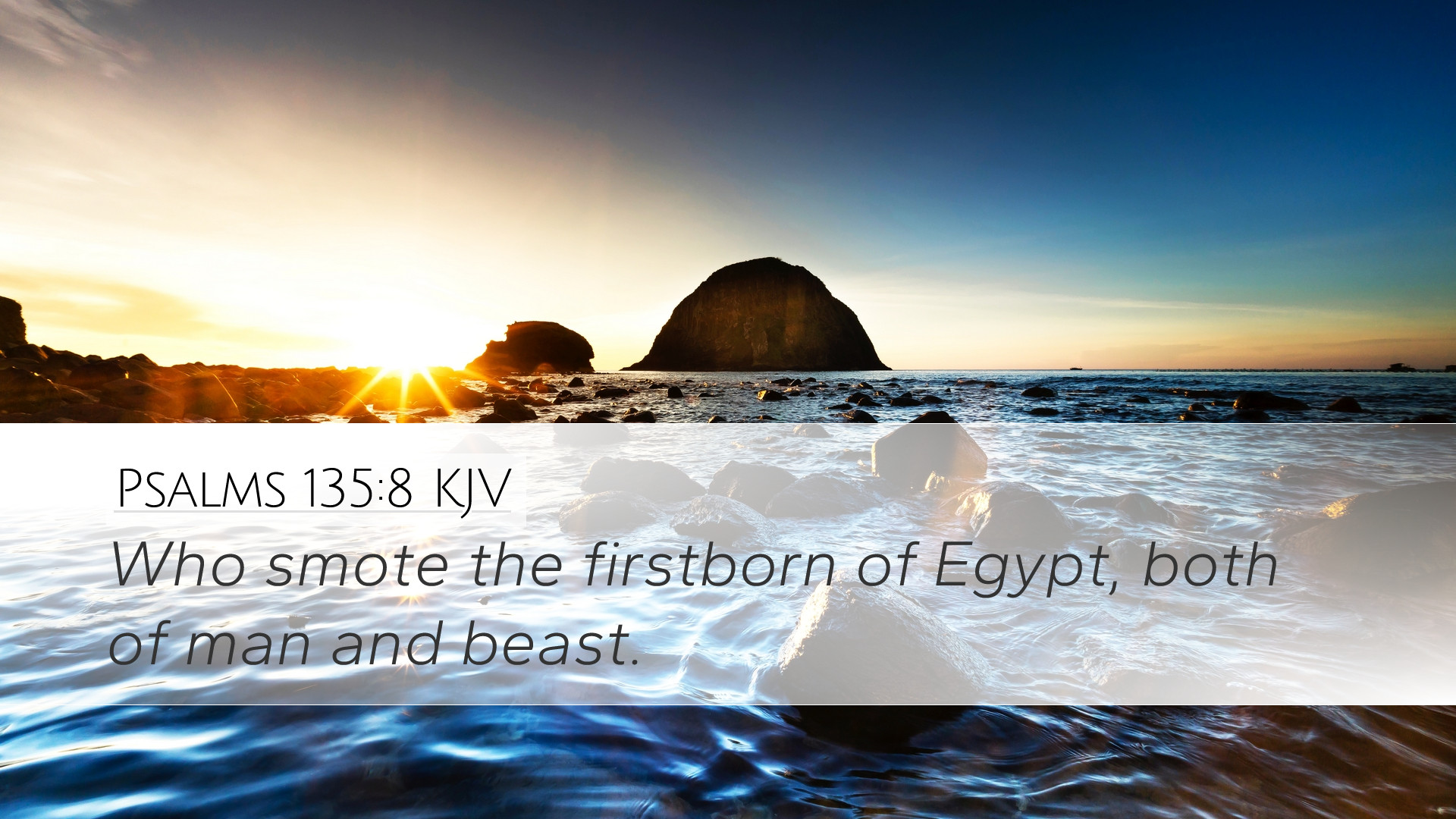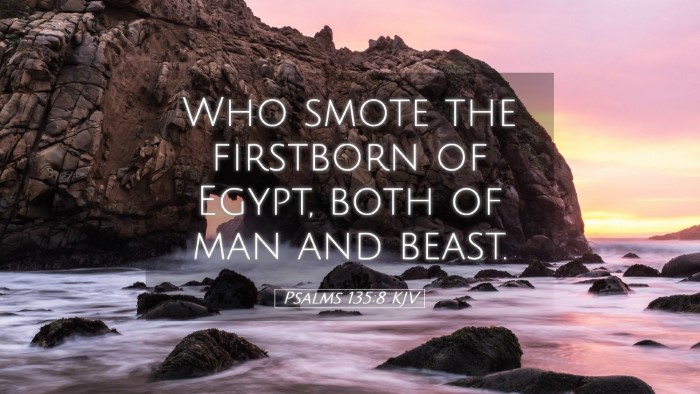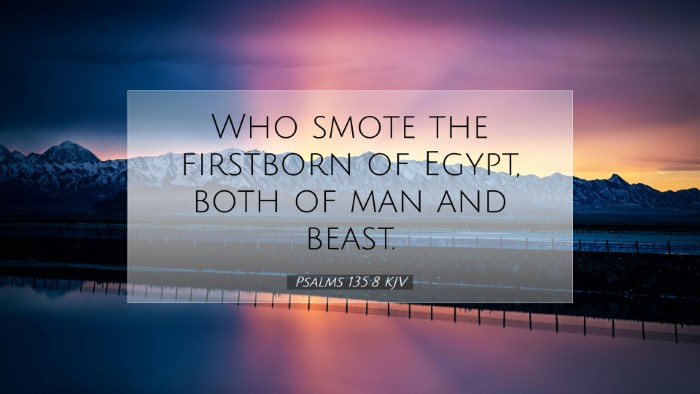Psalms 135:8 - A Commentary
Bible Verse: "Egypt with its firstborn He struck down." (Psalm 135:8, NIV)
Introduction
Psalms 135 is a song of praise, focusing on God's sovereignty throughout history, especially in His dealings with nations. Verse 8 specifically recalls the judgment placed upon Egypt, highlighting God’s authority and the seriousness of His judgments against those who oppose His will.
Historical Context
The reference to Egypt and the judgment of its firstborn recalls the Exodus narrative, where God decisively intervened in human history to liberate Israel from slavery. The plagues inflicted by God displayed His might and served as a testimony to His power over the false gods of Egypt.
Commentary Insights
1. Divine Sovereignty and Judgment
Matthew Henry notes that God's actions in Egypt signify His absolute authority and willingness to execute justice. The slaying of the firstborn stands as a prominent demonstration of God’s capacity to enforce His will, much to the devastation of those who resist Him.
Albert Barnes emphasizes that the plagues, particularly the death of the firstborn, served a dual purpose. Not only did it deliver Israel, but it also affirmed God's supremacy over the Egyptian deities, rendering them powerless. This event was a pivotal moment in showcasing God’s deliverance and righteousness.
2. Theological Implications
In examining Psalm 135:8, Adam Clarke points out the theological implications of divine justice and mercy. The judgment upon Egypt can be seen as a prelude to the gracious acts of God in leading His people to the Promised Land. It serves as a reminder that God’s mercy is available, yet His judgment against sin is equally fierce.
3. The Symbolism of Egypt
Egypt, in the biblical narrative, often symbolizes oppression and idolatry. Matthew Henry remarks that God’s striking down of the firstborn can be interpreted not only in a literal sense but also symbolically. Egypt represents the world’s oppression, and God's intervention symbolizes the hope for liberation from sinful bondage.
4. The Nature of God’s Judgments
Albert Barnes discusses the character of God's judgments in relation to human agency. The death of the firstborn was not arbitrary but rather a response to the persistent rebellion of Pharaoh and the Egyptians against God. This aspect of divine judgment calls for serious reflection among leaders and nations today regarding their treatment of God’s people.
Adam Clarke adds that reflections on this specific judgment can prompt individuals and communities to analyze their own spiritual states. Just as Egypt faced consequences for their actions, so too can modern societies reflect on their moral standings before God.
5. Lessons for Today
The message of Psalm 135:8 holds profound relevance for contemporary believers. Pastors and theologians can draw parallels between the historical narrative and present-day scenarios, where injustices occur, and God’s justice is sought. Matthew Henry suggests that this verse encourages faith in God's ultimate justice, affirming that He sees the oppressions faced by His people.
In applying this verse, both Albert Barnes and Adam Clarke highlight the importance of remembering God's past deliverances. Just as Israel was called to remember God's interventions in Egypt, modern believers are invited to reflect on the ways God has acted in their lives as a source of encouragement and hope.
Conclusion
Psalm 135:8 serves as a powerful reminder of God's sovereignty, justice, and mercy. The striking down of Egypt's firstborn resonates with themes of liberation from oppression, the seriousness of divine judgment, and the assurance of God’s faithfulness to His promises. As we study this verse, let us be encouraged to trust in God’s righteous character and His continuing action in the world today.


